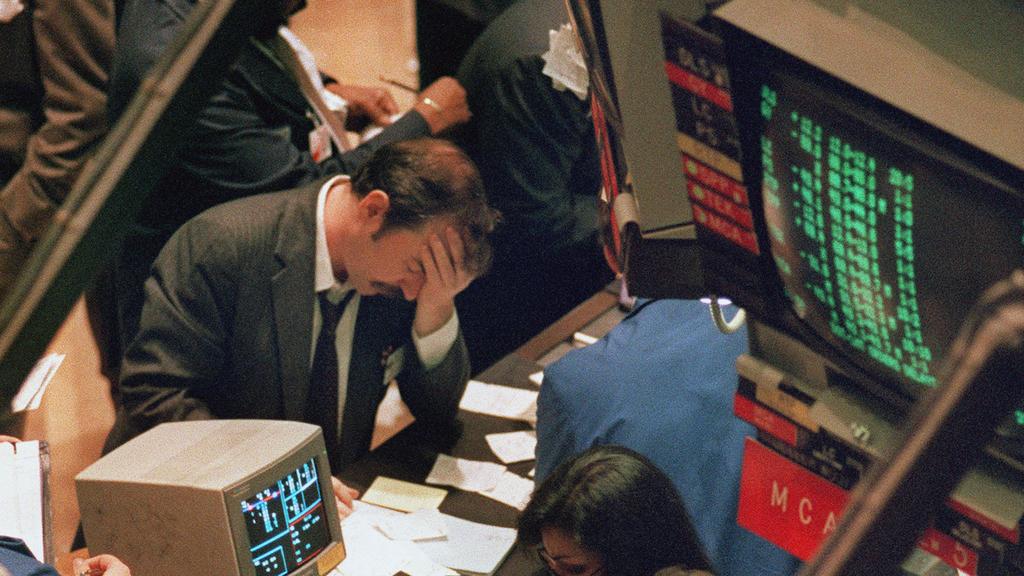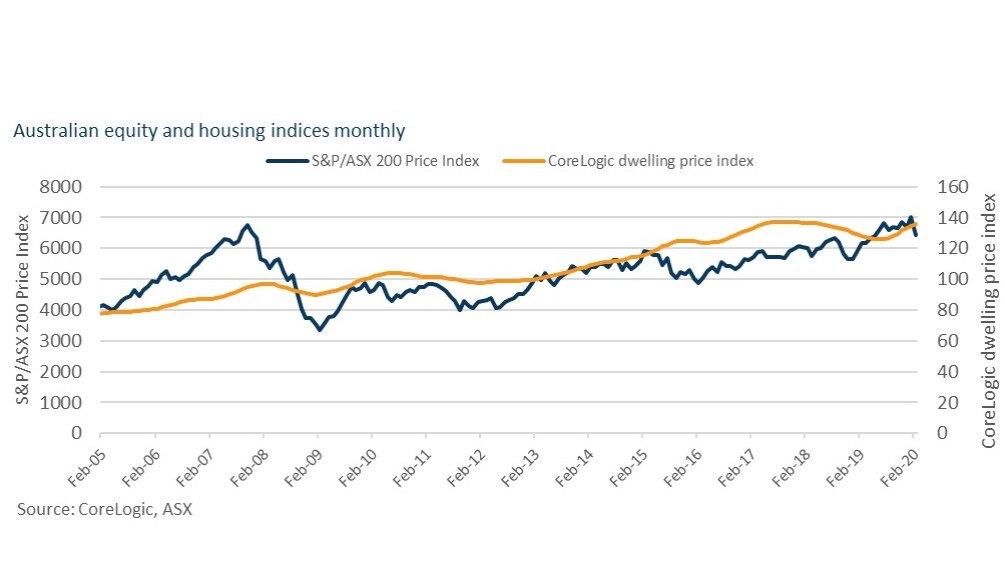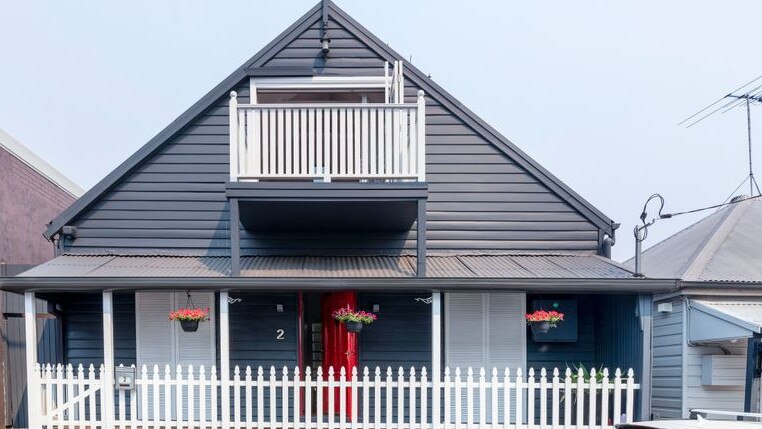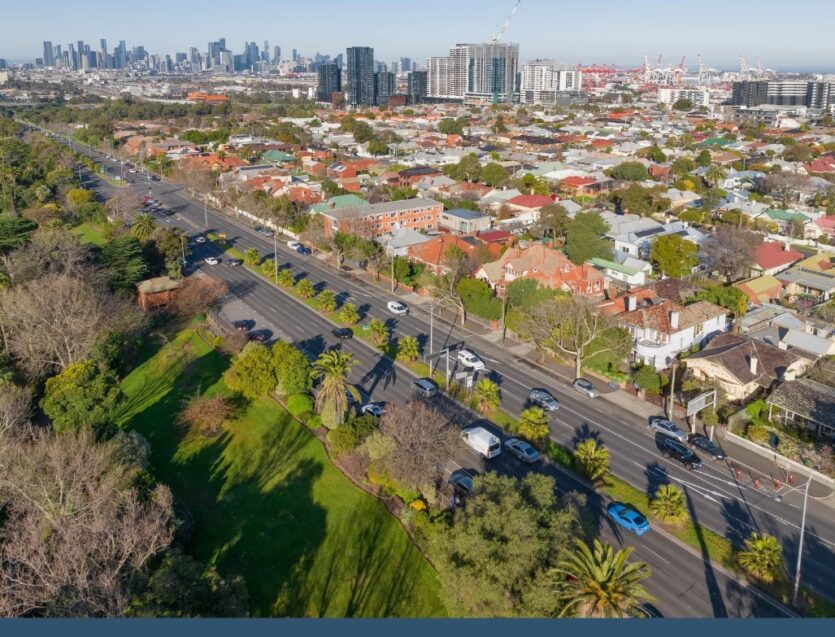Coronavirus: previous economic shocks reveal likely pandemic impact on Aussie housing
Article by: Aidan Devine
Source: realestate.com.au
March 18, 2020
Uncertainty over the effect of coronavirus may have sent stocks plunging to 30-year lows but property values are unlikely to get a similar hit – even in a recession, real estate analysts claim.
There is still considerable uncertainty over how the pandemic will impact the market but recent interest rate cuts suggest it will be largely insulated from a major crash.
The housing market also has a history of performing relatively well after economic shocks compared to the more volatile share market, according to CoreLogic head of Australian research Eliza Owen.
“Major share market losses and recession are not necessarily predictors of declines in housing values,” she said.
Explaining in CoreLogic’s latest Property Pulse, Ms Owen said real estate value changes during past stock market crashes varied.

CoreLogic head of research Eliza Owen said property values were less volatile than stocks.
During the 1987 “Black Monday” stock market crash, the Australian share market lost 23 per cent of its value in a single day but housing values were largely unaffected, Ms Owen said.
Values instead went up by double-digit margins a year later as financial deregulation drove up asset prices. The property price rise also coincided with a major drop in the unemployment rate.
Property values did decline during the early 1990s recession but only by about 4.4 per cent nationally over a period from June 1989 to October 1990.
Value drops were larger during the global financial crisis of the late 2000s, with national dwelling prices declining 7.5 per cent from February 2008 to January 2009, according to CoreLogic.

Nearly 23 per cent of the value of the Australian share market was lost on “Black Monday” in 1987.

The GFC-era slump ended quickly because of an uplift in mining-related investment, which lead to large job increases, and the start of a rate cutting cycle.
There was an additional housing market slump in 2017 and 2018, driven largely by tighter lending standards, but the downturn was quickly followed by another rebound.
Ms Owen said property values were “far less volatile” than share markets because housing was not a liquid asset and remained a consumption good.
The most likely scenario was uncertainty over coronavirus would drive down property transactions but not cause a major collapse in pricing, Ms Owen said.

Bob Hawke initiated negative gearing as we know it between 1985 and 1987, which insulated the market from major falls in the late 1980s. Picture: Errol Anderson
“There will be a lot of buyers who will put off their plans to purchase … but there will also be homeowners who decide not to (list),” she told The Daily Telegraph.
“Transactions could drop but I don’t think we will see a broadbased, major fall in prices … there will be some areas where job losses are higher and there’s more downward pressure on prices. It’s still unclear.”
She added that there was no single Australian housing market and there could be variance in the performance of different cities, suburbs and housing categories.
One of the challenges for the real estate industry would be accommodating increased isolation precautions, such as those seen in China and Italy, Ms Owen said.

The median price of a Sydney house is more than $1 million.
“Confinement to the home would prevent physical inspections and on-site auctions … real estate industry professionals may respond by offering private inspections rather than open homes, virtual inspections using technology, or remote auctions.
“But such technologies can be difficult to adopt in the best economic conditions. Prospective buyers and sellers are likely to postpone activity until conditions revert to normal.”



Currently, Perth is the capital city that our research is driving our clients to for optimal investment outcomes. Keep an eye out for our upcoming report on Victoria, and the opportunities we feel this market will present from early to mid-2025. CPA Property Reports are the ultimate research tool for those considering an investment into the any Australian property market.